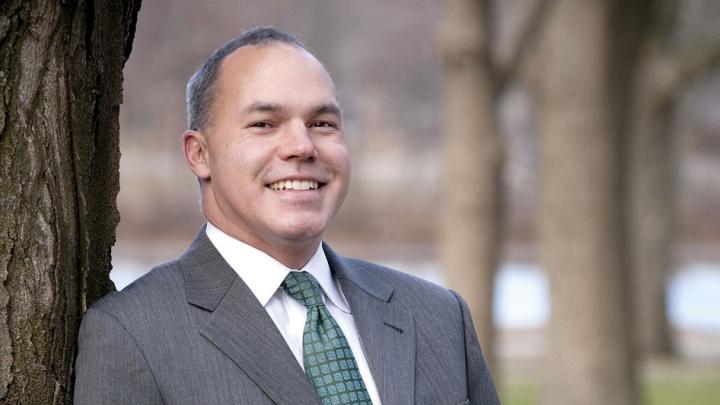When Joseph Aldy trekked up Mount Kilimanjaro with his father in 2000, he was a long way from the farm in Kentucky where he grew up—but close to the things that matter to him. Aldy is an economist who works on energy and climate-change policy. He loves to hike. On Kilimanjaro’s 19,341-foot peak, he got to see the last vestiges of the 11,000-year-old glaciers there—they are expected to disappear within the next decade or so. An assistant professor of public policy at Harvard Kennedy School (HKS), he is faculty chair of the regulatory-policy program at its Mossavar-Rahmani Center for Business and Government. He got his start in environmental economics in Washington, D.C., where he became jet-lagged working on the Kyoto Protocol in 1997, even though he didn’t go to Japan: he was the economist who stayed home and crunched U.S. emissions numbers from 7:30 p.m. to 6:30 a.m. for the Council of Economic Advisers (CEA). In the Clinton administration, he rose from a presidential management internship to posts as staff economist, and then senior economist for the environment and natural resources, for the CEA. After earning a Ph.D. from Harvard in 2005, he returned to government service under President Obama as special assistant to the president for energy and environment, deferring his appointment at HKS to work on the clean-energy package of the American Recovery and Reinvestment Act, among other initiatives. “The political world can get hung up on trivial things,” he says, but experience gained by “working in Washington can help you understand what really is a relevant policy question. Scholarship needs to be informative.”
Joseph Aldy

You might also like
The Enterprise Research Campus, Part Two
Tishman Speyer signals readiness to pursue approval for second phase of commercial development.
Sean Kelly Named Dean of Arts and Humanities
Will begin new role July 1
Slow and Steady
A Harvard Law School graduate completes marathons in all 50 states.
Most popular
More to explore
Exploring Political Tribalism and American Politics
Mina Cikara explores how political tribalism feeds the American bipartisan divide.
Private Equity in Medicine and the Quality of Care
Hundreds of U.S. hospitals are owned by private equity firms—does monetizing medicine affect the quality of care?
Construction on Commercial Enterprise Research Campus in Allston
Construction on Harvard’s commercial enterprise research campus and new theater in Allston







